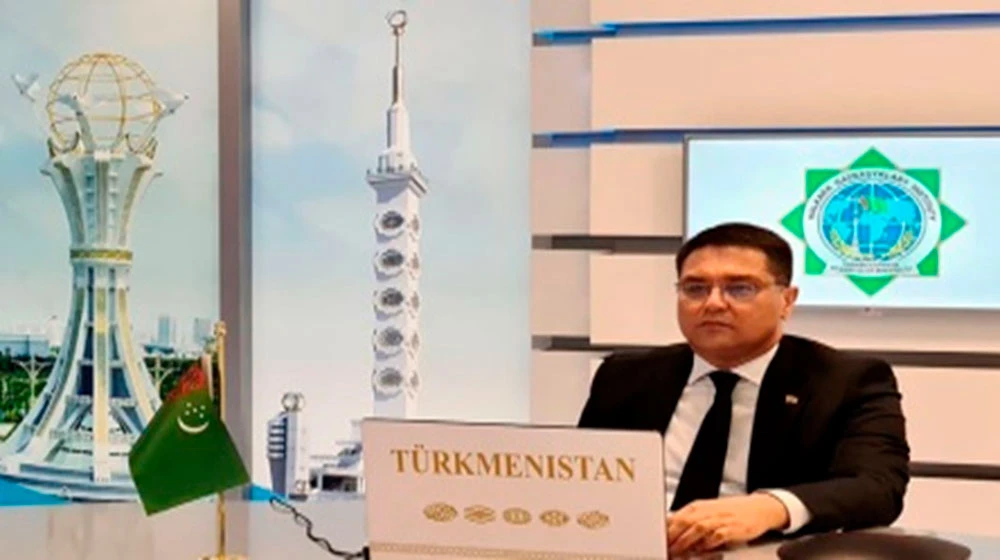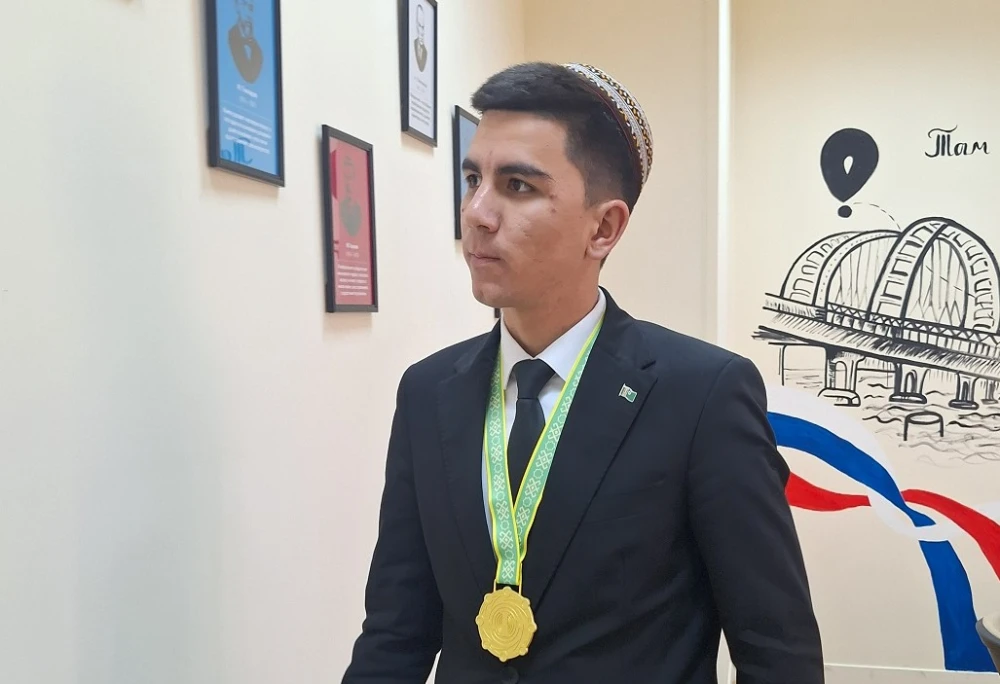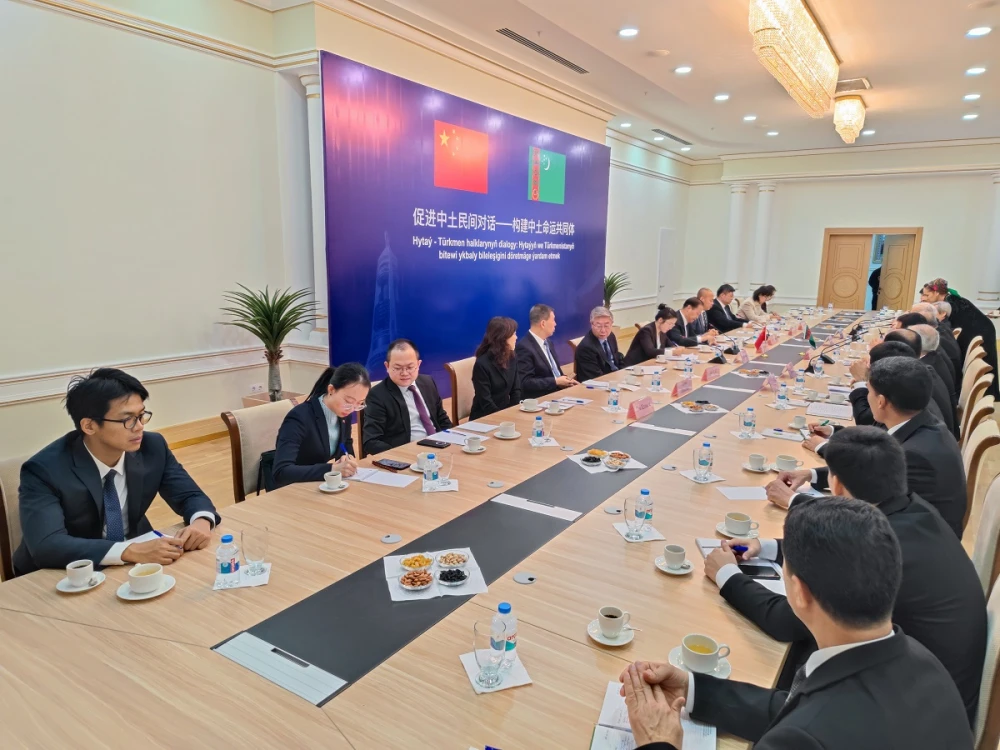
1597
Turkmenistan and Uzbekistan confirm mutual readiness to strengthen and enhance cooperation with concrete content
The official visit to Turkmenistan of the President of the Republic of Uzbekistan Shavkat Mirziyoyev has recently ended. As a result of the talks between the President of Turkmenistan Serdar Berdimuhamedov and his Uzbek counterpart, it was declared that in recent years it was possible to create a completely new atmosphere of Turkmen-Uzbek relations and give cooperation a strategic character. Mutual readiness was also reaffirmed to strengthen and further enhance the interaction of the fraternal peoples with concrete content. In this regard, the editors of the “Golden Age” addressed the Scientific Center for Strategic Studies of the Institute of International Relations of the Ministry of Foreign Affairs of Turkmenistan and asked its head Sh.A. Shiriev to share his impressions about the visit and answer our questions.
- Shiri Akoyliyevich, the new atmosphere in Turkmen-Uzbek relations is not just words, what is behind all this and how is it backed up?
- In building diplomatic relations, the political will of the leaders of the two states often plays a great, if not decisive, role. In my opinion, the relations that have developed in recent years between the leaders of Turkmenistan and Uzbekistan are exactly the same case. It is the commonality of views and interests, the aspirations and political will of the leaders of the two countries, based on the principles of equality, good neighborliness, the historical commonality of peoples and the desire to strengthen peace both at home and in the region, that led to that very new especially trusting atmosphere in Turkmen-Uzbek relations .
Our relations were previously based on the fundamental principles of Turkmen-Uzbek relations, laid down in the Treaty of Friendship, Cooperation and Mutual Assistance between Turkmenistan and the Republic of Uzbekistan of January 16, 1996 and the Treaty on Strategic Partnership between the countries of March 6, 2017.
The novelty of the current relations is also in the fact that both sides are not just interested in solving any common tasks, but this is being done without delay and according to specific road maps. A good example of this is the decision to create a Turkmen-Uzbek border trade zone. Just three months ago, during the negotiations between the Presidents of Turkmenistan and Uzbekistan, an agreement was reached on this, and today the foundation is being laid for the construction of one of the first facilities of the common infrastructure project. Another distinctive feature of the current Turkmen-Uzbek relations is the unified approach of the leaders of the countries in the effective use of the potential of inter-parliamentary friendship groups to monitor the implementation and promotion of agreements at the highest level. In addition, there is a desire of the parties to give cooperation a productive character. In addition, there are many such examples.
- If could you tell briefly about the pressing issues in which both parties are interested and were they considered in the negotiations between the parties?
– If you look at the text of the Declaration adopted at the end of the talks, then in principle everything is revealed in detail in it. Nevertheless, I will say that during the talks, great importance was attached to discussing issues of regional security, largely related to the development of trade and economic relations with Afghanistan in order to maintain peace and stability there. Both Uzbekistan and Turkmenistan reaffirmed their desire to provide economic and humanitarian assistance to the fraternal Afghan people.
During the talks, the desire to further cooperate in international organizations, primarily in the UN, the CIS, the Organization of Islamic Cooperation and the Economic Cooperation Organization, was clearly manifested.
Special attention was paid to inter-parliamentary cooperation. Close cooperation between the legislative bodies of Turkmenistan and Uzbekistan today has become an essential and integral part of interstate relations.
Particular emphasis at the talks was placed on the further development of bilateral trade and economic relations. The intention to continue joint activities in such important areas as energy, transport, agriculture, industrial cooperation, high technologies and trade was confirmed. Special attention was paid to partnerships in water management, environmental protection and other areas.
- Shiri Akoyliyevich, you mentioned the Declaration adopted as a result of the Turkmen-Uzbek negotiations. Which provisions of this document are especially close to the issues concerning the activities of your Center?
– Let me start by saying that literally all the issues reflected in the Declaration, to one degree or another, affect and relate to the activities of our Center. Moreover, these are topical issues of political interaction, security issues, legal cooperation, trade and economic, transport, energy cooperation, interregional, cultural and humanitarian cooperation, environmental protection.
It is gratifying that the section of the Declaration on “Cooperation on Security” also includes separate assessments of the challenges and threats for the Central Asian region, which were voiced by the President of Turkmenistan Serdar Berdimuhamedov at the Consultative Meeting of the Heads of State of the region in July this year.
I think it is appropriate to recall some of them. The Declaration stipulates that the parties will deepen:
- partnerships through interested departments, cooperation within the framework of international and regional organizations in the field of countering terrorism, extremism and separatism, money laundering, illicit trafficking in narcotic drugs, psychotropic substances, their analogues and precursors, weapons and ammunition, organized crime;
- the parties express their concern about the use of modern information and communication technologies for illegal purposes and damage to national security, including for interfering in the internal affairs of states and undermining their sovereignty;
- the parties’ focus on constructive interaction to ensure international and biological security at the regional and global levels, primarily within the UN, is confirmed.
There is a paragraph in the Declaration regarding the activities, including our Center: “The parties, in order to study the prospects, determine priorities for the effective development of cooperation between Turkmenistan and Uzbekistan, emphasized the importance of developing ties between think tanks and expert and analytical communities of the two countries.”
Let me remind you that our Center exists for the second year. During this time, we have managed to establish contacts and business relations with many similar analytical units abroad. Of course, one of our first partners was the Centers for Strategic Studies of Uzbekistan. Our employees have already attended international conferences in Tashkent, which allowed us to establish closer ties with leading experts from Uzbekistan and the region. And literally on the eve of the official visit to Turkmenistan of the President of Uzbekistan Sh. Mirziyoyev, on October 20, we held another online conference with employees of the Institute for Strategic and Interregional Studies under the President of Uzbekistan, which also discussed pressing issues of Turkmen-Uzbek relations.
– Shiri Akoyliyevich, thank you for the conversation. What would you call the main outcome of the visit?
- In my opinion, one of the main results is that the visit of the Uzbek leader and the talks in Ashgabat as a whole showed that both Turkmenistan and Uzbekistan, as well as the interstate relations built by them, are today a strategic factor in the stability and positive development of processes in the Central Asia. An example of how the problems of the region can and must be resolved by peaceful means on the principles of friendship and good neighborliness has been clearly demonstrated.


